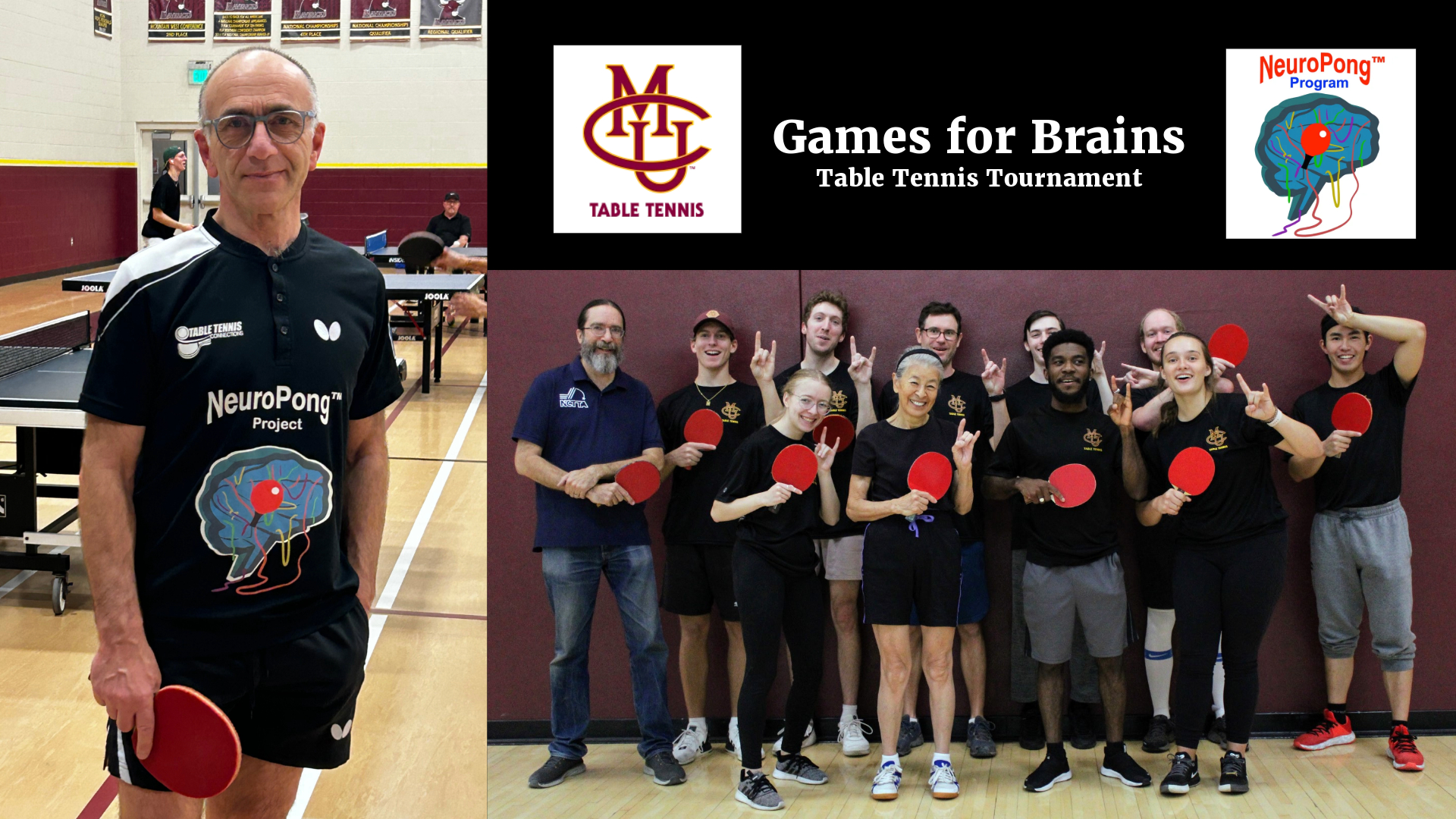Colorado Mesa University is fostering breakthrough strides in neurology exploration via table tennis. On April 6, the CMU Table Tennis Club and Grand Junction NeuroPongTM chapter are teaming up to raise money and awareness for people with multiple sclerosis (MS), Parkinson’s and dementia. Game for Brains will host “everyone with a brain” in a competitive and fun table tennis tournament. The man behind the mission: former medical doctor and MS fighter, Dr. Antonio Barbera. He visited a table tennis practice to share his story and goals for the local NeuroPongTM chapter and fundraising event.
When Dr. Barbera was diagnosed with MS, he first lost control and sensation in his right leg, and then a year later, lost the same in his left arm. After being forced to leave his practice and nine months of recovery, Dr. Barbera regained feeling in his limbs. Despite his recovery, he described a feeling of constriction on his chest that would not go away, a symptom that many MS patients deal with on a day-to-day basis. But one day, he picked up a paddle and started playing table tennis. “I realized that the elephant that was laying on my chest and was now sitting on a chair,” he said. This sparked the question: is there a connection between playing this type of sport and cognitive impairment recovery?
Dr. Barbera embarked on an explorative journey, delving into research and studies done all around the world. Although there was no research on MS specifically, he did come across research correlating the effects of playing ping pong to neuroplasticity. Neuroplasticity, the capability of the brain to rewire itself, is stimulated by learning and new experiences. For people with MS, Parkinson’s and dementia, re-learning is a part of the path to recovery. Movements as simple as a forehand or backhand can be a complex action for people with these conditions. CMU table tennis coach, Michael Meens describes the sport as “chess at 90 miles per hour.” By practicing this precision driven activity, the brain works to build itself back one cell at a time.
Dr. Barbera’s experience stimulated the need to cultivate community and awareness, and his impact has had a growing effect. With chapters in Grand Junction, Fort Collins, Boulder, Denver and beyond, there are plans in the works to build NeuroPongTM chapters across the world. These chapters are a hub for case study research, working to prove a correlation between table tennis and cognitive impairment recovery.
CMU freshman and table tennis participant Jacob Trowbridge is also excited to be a part of this local community. His dream to become a doctor paired with an impromptu introduction to the CMU table tennis club conveniently correlate. Jacob has been volunteering with NeuroPongTM, gaining empowering insight through his conversations and interactions with MS, Parkinson’s and dementia patients. “I think a lot of these players are really inspiring,” Trowbridge said. “They are dealing with their condition proactively and seeing little improvements.”
CMU table tennis and NeuroPongTM’s Game for Brains tournament is a prime example of the impact Dr. Barbera hopes to create. He is redefining these conditions and taking them on with resiliency and humility. “Anywhere I can build this community with people experiencing these conditions, my hope is to bring people together under the same roof and around the same table,” he said. “We all have a brain, and we all want to have fun.”
